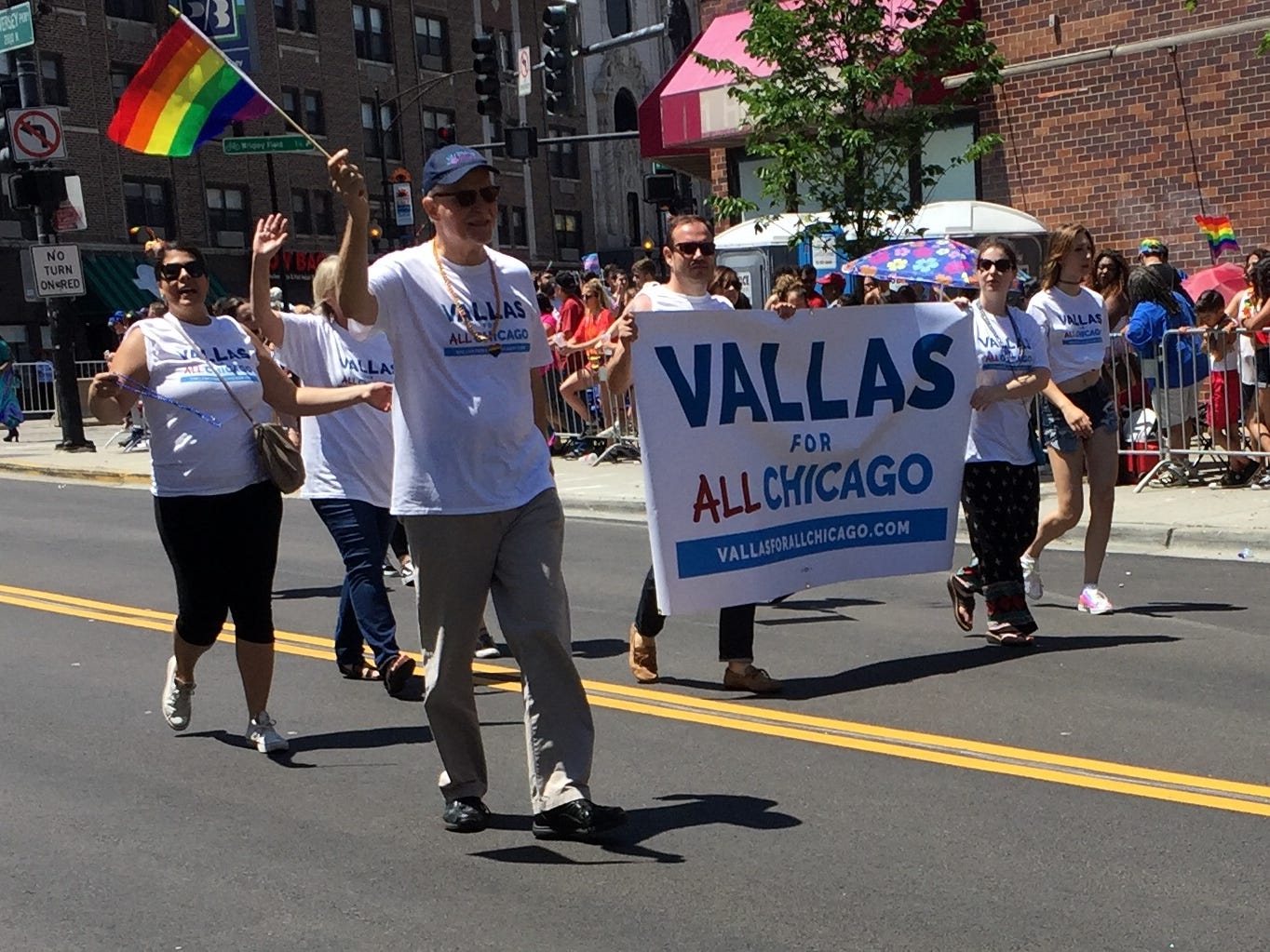Who needs a runoff?
Chicago's third-ever runoff election could be its last if voters push for electoral reforms that would make the costly and time-consuming second round election obsolete.
For the third time since a 90s-era law changed Chicago’s municipal elections, making them non-partisan and adding runoff election, Chicago will hold that second round of voting, this time featuring candidates Paul Vallas and Brandon Johnson.
Since the law went into effect, a candidate must get at least 50 percent plus one vote in the initial electoral contest. If no candidate reaches this threshold, a runoff election is triggered.
In an article posted on Election Day, the Chicago Tribune explained that detractors of the original law that got us into this situation saw it as a “coordinated scheme by white Democrats and Republicans to thwart African American mayoral aspirations.”
At the time, the Harold Washington Party was a significant third party player in municipal politics. It was thought that making the elections nonpartisan would negatively impact that party’s chances.
Chuy Garcia forced incumbent mayor Rahm Emmanuel into a runoff in 2015, though Emmanuel won that runoff. Every election cycle since has featured a runoff election.
Since the runoff has not been a feature for long, it’s worth noting that it need not be a feature Chicagoans accept without question.
And as I noted a couple weeks back, at least one city alderman has taken the next step, proposing what he calls a better way forward: ranked choice voting.
In a RCV election, the runoff happens at the same time as the initial round, with voters ranking candidates from their first choice to their last choice. The candidate with the fewest first-ranked votes gets eliminated in the first round, and that candidate’s voters go to their second-choice candidate. This process repeats until one candidate reaches the 50-percent-plus-one-vote threshold, just like in our own runoff election, but happening in a single election.
This saves time and money, and generally leads to higher turnout than a runoff election, which tends to see a drop off in turnout when compared to the initial round.
RCV is not the only way to achieve this result. In a STAR election, voters give each candidate a score from zero to five, and the two candidates with the highest average score go to an automatic runoff. Each voter’s full score goes to those candidates, and the candidate with the highest average score wins.
In both cases, voters avoid a time-consuming and costly second round of voting.
Why continue with runoff after runoff when we have available alternatives? We can do better. Let’s make this third runoff election Chicago’s last.
The Round Up
Here are the stories that caught our eyes this week and what they mean for the weeks ahead.
A shifting mood on crime propelled Chicago’s leading candidate for mayor
When Paul Vallas ran for mayor of Chicago four years ago, he finished a distant ninth place with just 5 percent of the vote.
But on Tuesday, Vallas’s tough-on-crime message put him well ahead of the other candidates and made Mayor Lori Lightfoot Chicago’s first incumbent to lose re-election since the 1980s.
Homicides and property crime rose during Lightfoot’s tenure, and promises to crack down have taken on a broader appeal among the Chicago electorate.
Following the first round of the 2023 Chicago mayoral election, Cook County Commissioner Brandon Johnson joins former Chicago Public Schools CEO Paul Vallas as the two candidates who will advance to an April 4 runoff.
Johnson announced his candidacy in late October with an endorsement from the Chicago Teachers Union, and got more than 20 percent of the citywide Feb. 28 vote.
Johnson quickly rose in polls during the final weeks of the race, consolidating much of the city's labor union and progressive support.
Johnson was elected to the Cook County Commission in 2018, narrowly defeating former Cook County Commissioner Richard Boykin in the Democratic Party primary before running unopposed in the general election.
Brandon Johnson and Paul Vallas vie for Lightfoot and García’s supporters
With just five weeks until Chicago’s mayoral runoff, former Chicago Public Schools CEO Paul Vallas and Cook County Commissioner Brandon Johnson are working to court the more than 270,000 Chicagoans who backed their opponents in Tuesday’s first round.
The runoff is likely to get ugly, as Johnson and Vallas differ sharply on two key issues: crime and education.
The question is the degree to which each candidate’s vision will resonate with Lightfoot supporters, mostly in majority-Black wards on the South and West sides.
The candidates are also vying for Garcia’s supporters. The Congressman came in fourth with 13 percent of the vote, much of it from majority-Latino wards.
Newsclips
Ald. Gil Villegas headed to runoff with challenger Lori Torres Whitt in 36th ward
David Brown resigning as Chicago Police Department superintendent
Chicago area scores No. 1 ranking for business relocations, expansion
Pandemic-era SNAP benefits expire, leaving families scrambling to put food on table
Mayoral race highlights
Vallas and Johnson headed to Chicago mayoral runoff, Lightfoot denied second term
Denied reelection, what’s ousted Lightfoot’s legacy?
Chicago’s bitter election is now a nasty runoff
Former Illinois Secretary of State Jesse White endorsing Vallas for mayor
Chicago Teachers Union, affiliates spend nearly $2.5M to put Johnson in mayoral runoff
Do you have ideas for future Civic Update stories or want to contribute a story yourself? Email our editor by clicking the button below!







